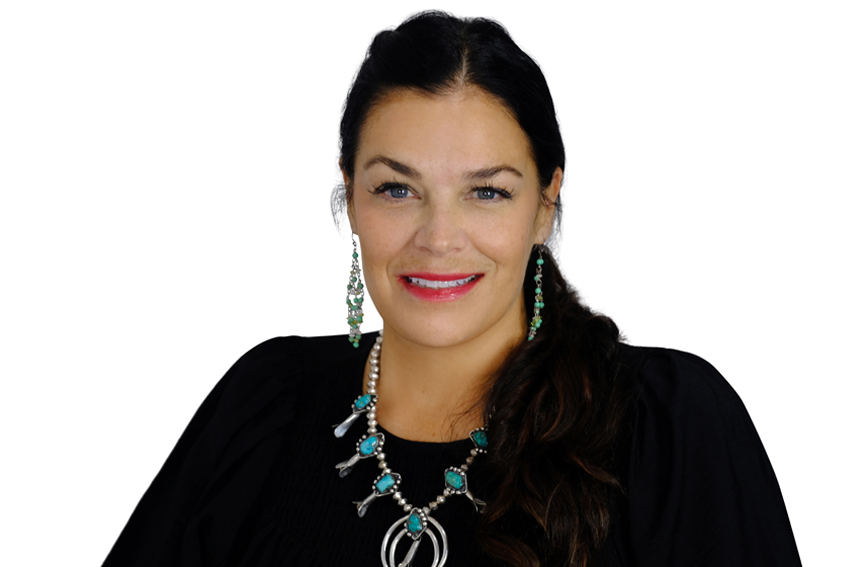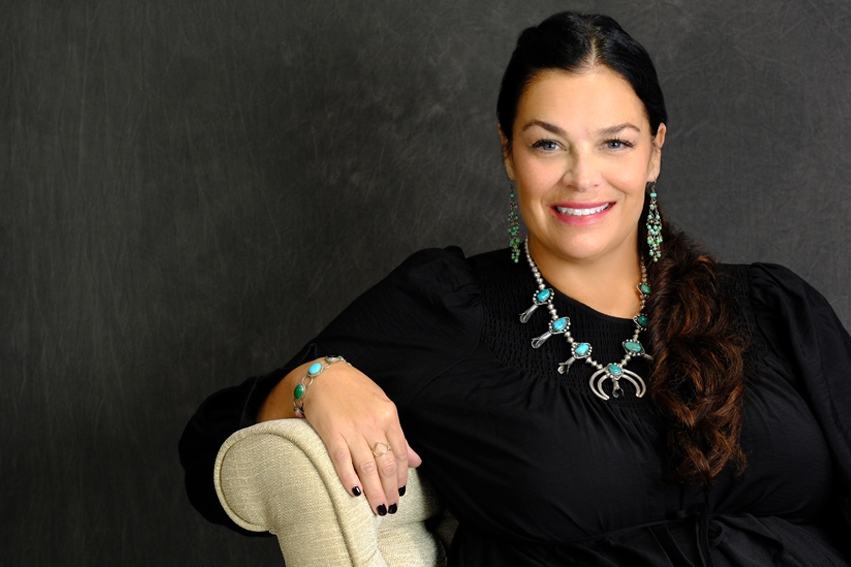Cindy Morris

As president of the Peoria Public Schools Foundation, Cindy Morris leads a team charged with raising private donations to help support the students of Peoria Public Schools. Working in partnership with businesses and the greater community, the foundation is a champion for positive change and serves as a catalyst to implement bold ideas that achieve remarkable outcomes for Peoria’s children. A former banker with 25 years of management experience, Morris specializes in community outreach, fundraising, event planning, staff and program management. In addition, she recently turned her lifelong love of baking into a side business known as Cindy’s Confections, sharing traditions passed on by her grandmother and mother.
Tell us about your family and childhood. What were your hobbies and interests?
I was born in Peoria. My late mom, Dorothy Maloney, grew up on a farm near Springfield and came to Peoria to go to nursing school, where she met my late dad, Tom Maloney. They raised me, my sister Pam and our brother Tommy, and all of us still live in the Peoria area. We grew up on Northland Street in the central part of Peoria near Proctor Hospital. We knew many of our neighbors, had great childhood friends and walked to Hines School. My hobbies included music, swimming and making art. My grandmother was a well-known, self-taught painter and a big influence on my love of art. Our home is filled with her watercolors to this day.
Who or what were early influences on you?
Family members were my greatest influences.
My mother showed me traditional values as a homemaker for my older sister, younger brother and me. My father showed me resilience, overcoming three open heart surgeries as he worked his way up to become an insurance company manager. Later, in retirement, he started a cleaning business. My mom’s dad showed me a strong work ethic as a farmer. My mom’s mom was the creative influence—a teacher and artist. My dad’s dad was the most kindhearted man I ever knew; he worked in a factory and retired to a humble home in rural Missouri.
Tell us about your educational background and early career path.
After graduating from Woodruff High School, I earned an associate’s degree at Illinois Central College and went straight into banking. Later in life, after having our two children and 15 years in retail banking, I went back for my bachelor’s degree in management online. It was an educational path that worked for me. Finishing my bachelor’s degree allowed me to make a career jump into an educational role, first as Adopt-A-School coordinator, and then as foundation director for Peoria Public Schools.
Fifteen years of retail banking was a great first career for me, teaching the importance of customer relationships. After several years at home with our two children, my passion for education grew strong, and aligning my professional skills with my personal passion naturally led me to help match those with resources to give with helping to provide the best possible experience for our young people.
Describe your duties with the PPS Foundation.
My role at the Peoria Public Schools Foundation is to help lead a terrific board and staff to raise supplemental funding exclusively for the Peoria public school district—yet it is so much more than that. During my ten years in this role, we have grown the foundation in awareness, programming and staff. Our board chair, Cathy Wiggers, and nine total members help oversee programming, such as mentor development with our Horizons Club, connecting more than 100 volunteers with 800 students. We also provide teacher grants. We organize fun events like an annual golf outing and our 365 Breakfast, and we are the charity partner on the Wine & Whiskey Walk and the Peoria Schoolhouse Open. We help the superintendent, Dr. Sharon Desmoulin-Kherat, perform in her dynamic leadership role through various activities, such as helping her accomplish her goal to visit each one of our 27 schools during the first two days of class every fall. We provide coats and clothing and address emergency needs when principals and teachers bring them to our attention. The “Right Now Fund” supports technology, classroom grants and other basic needs. We administer more than 50 specific funds supporting a wide range of programs, from scholarships to special projects that are permanently endowed.
What is your favorite part of your job?
My favorite part of my job is that it doesn’t really feel like a job. This work has touched my heart, and I’m deeply passionate about what we do. My main goal is to be able to provide experiences and opportunities to children in a way they would not otherwise have.

Tell us about your community involvement.
The PPS Foundation allows me to interface with dozens of various organizations, both inside and outside of our
immediate community. It makes me happy to see more and more relationships growing with our schools, ranging from the work of businesses, service clubs and churches through the Adopt-A-School program to the incredible Every Student Initiative at the Peoria Riverfront Museum, where my connection is both professional and, of course, personal. Wherever I can, I promote the idea that our students are the future and we must help them succeed both socially and academically. Over the past ten years, it has also been fun for me to be called on to consult with other public school foundations around the state about our success in Peoria, and how private dollars and private volunteers can help maximize the student experience.
Tell us about starting Cindy’s Confections and your love of baking.
Baking has been in my family for generations. During the pandemic, it occurred to me to formalize my hobby of the constant baking I had been doing for 30 years. That led to me taking the courses to obtain a special food management certificate and cottage license, as required to sell my cookies and breads to the public. This past year, I have set up booths at the Junction City Farmers Market as well as some pop-ups at the Peoria RiverFront Market. My daughter Taylor (a recent college grad and art major) sits at her own booth right next to me selling her art and crafts. This time together has been truly special.
What is your secret to maintaining a balance between your community work and personal life?
Balance is very important to me and my life. I lost both my parents in the last four years, and both passed at 73. When I was 35, I was diagnosed with rheumatoid arthritis, a disease that nearly incapacitated my mother in her later years and caused severe pain. Thankfully, I have been on treatment for years, which has dramatically slowed my own progression, but I have had to learn how important it is to balance things. Sleep, exercise and watching what I eat has helped immensely with living fully. While I’m out in the community with events and such, I also say no a lot; that is to maintain this balance of working full-time and being at my best.
What’s the hardest life lesson you’ve had to learn?
It is okay to make mistakes and fall, but you must pick yourself up and keep moving forward. I suffered a youth of insecurity, and then some depression when I had children; that combination was problematic. Getting a professional counselor was life-changing and helpful for me to be the person I am today.
What is your leadership style?
My leadership style is to help people grow, providing support and encouragement, and giving them responsibilities and your trust. I have put an excellent team together, and I pride myself on it.
What is the greatest struggle working women face today?
You can easily get boxed-in at a job. You want to be in a job that you like (if not love), respect your boss, and like the people you work with. If not, work hard and you can find it.
What book should every woman should read?
Put Your Big Girl Panties On and Deal with It. It is by Roz Van Meter, a personal coach and counselor, and it hit home with me.
Is there anything else you’d like to add?
Here is one last story; it is a favorite of mine. Basic needs have to be met before people can be the best they can be. One of the programs of our foundation is called Little Free Pantries. We have these pantries at many of our schools, where non-perishable food and toiletry items can be accessed for free by people in need. One day, while idling in my car and waiting for the superintendent—she was on one of our famous drive-around days to start the school year—my car was parked near the Little Free Pantry at Trewyn School.
Out of the corner of my eye, I saw an older woman approach the pantry, open the little door and walk away. Curious, because she had nothing in her hands, I got out of the car and looked in the pantry, where I found a handwritten note that simply read, “Thank you for this.” This woman’s act of gratitude for providing her family with a very basic need is a story that will be with me forever. Food insecurity is a real issue for many of our children, who are entirely dependent on us. PM
- Log in to post comments

